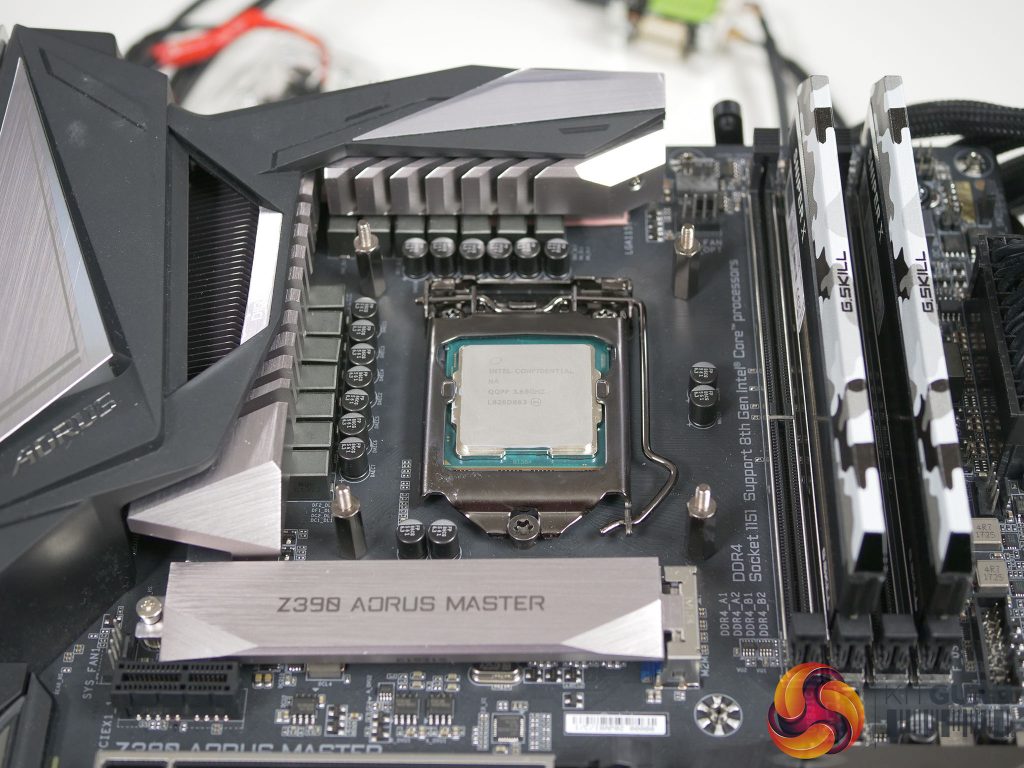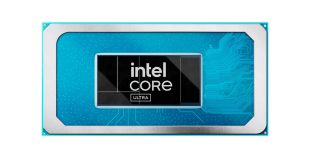Testing
To test Core i9-9900K we used three distinct platforms with a number of common components, exactly as you will have seen in our video. We limited DDR4 speed to 3400MHz (still pretty fast, however) to ensure that AMD wasn’t shown at a disadvantage that skewed our figures.
The only significant difference between the platforms is that Core i7-7820X uses quad channel DDR4. We adjusted the XMP speed of our Corsair Dominator Platinum SE down from 3466MHz to 3400MHz to match the G.Skill SniperX.
In our review of AMD Ryzen 7 2700X we concluded that manual overclocking was fairly pointless as the increase in performance was minimal. With this in mind we left the 2700X CPU on Auto settings with an all-core clock speed of 4.05GHz. Similarly, we overclocked our pseudo Core i7-9700K (i9-9900K with HT disabled) to 5.2GHz but did not run benchmarks at stock clock speeds. We were working with an engineering sample CPU and felt it would be unwise to draw too many conclusions about the performance of a genuine Core i7-9700K.
Test systems used:
CPU: Intel Core i9-9900K
Motherboard: Gigabyte Z390 Aorus Master
RAM: 16GB G.Skill SniperX DDR4-3400MHz
CPU: Core i7-8700K
Motherboard: ASRock Z370 Extreme4
RAM: 16GB G.Skill SniperX DDR4-3400MHz
CPU: Intel Core i7-7820X
Motherboard: Asus ROG Rampage VI Extreme
RAM: Corsair Dominator Platinum SE DDR4-3466MHz
CPU: AMD Ryzen 7 2700X
Motherboard: Gigabyte X470 Aorus Gaming 7 WiFi
RAM: 16GB G.Skill SniperX DDR4-3400MHz
Common components
CPU Cooler: Fractal Design Celsius S24
Graphics: Nvidia RTX 2080 Founders Edition 8GB GDDR6
SSD: 1TB WD Black M.2 NVMe and 512GB Samsung 960 Pro
Power Supply: Seasonic Prime Platinum 1300W
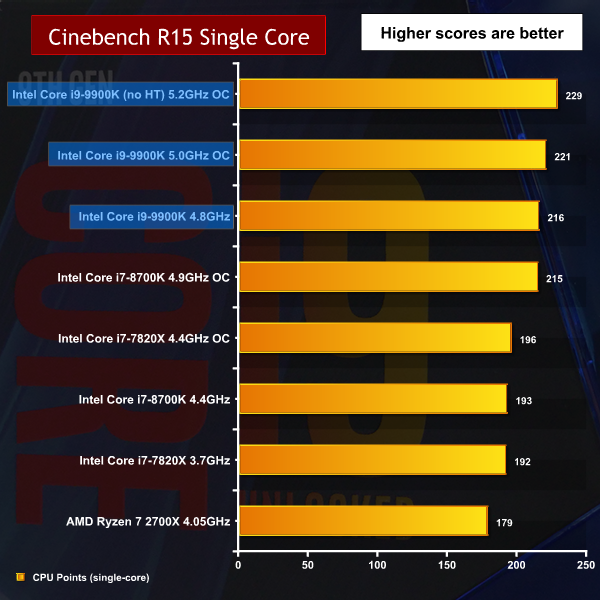
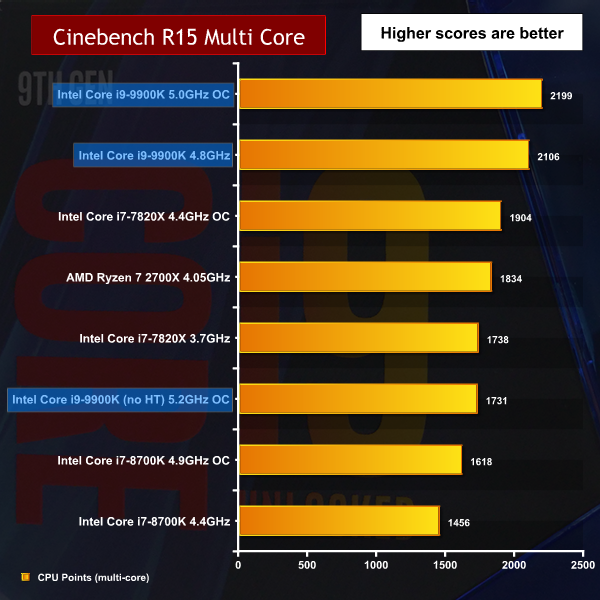
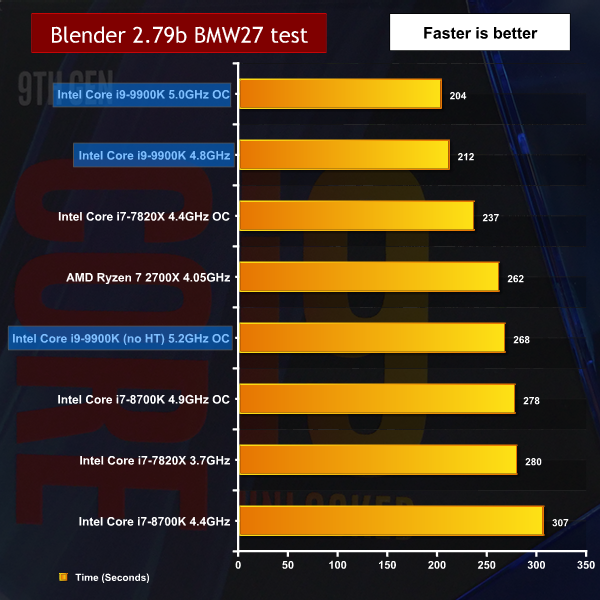
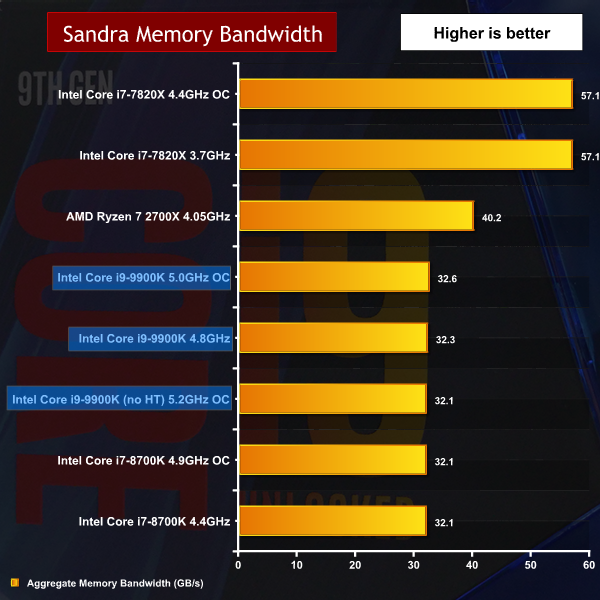
 KitGuru KitGuru.net – Tech News | Hardware News | Hardware Reviews | IOS | Mobile | Gaming | Graphics Cards
KitGuru KitGuru.net – Tech News | Hardware News | Hardware Reviews | IOS | Mobile | Gaming | Graphics Cards


